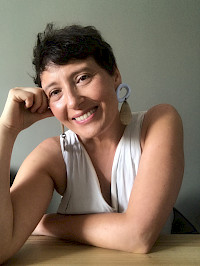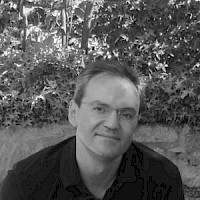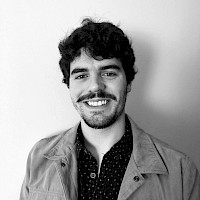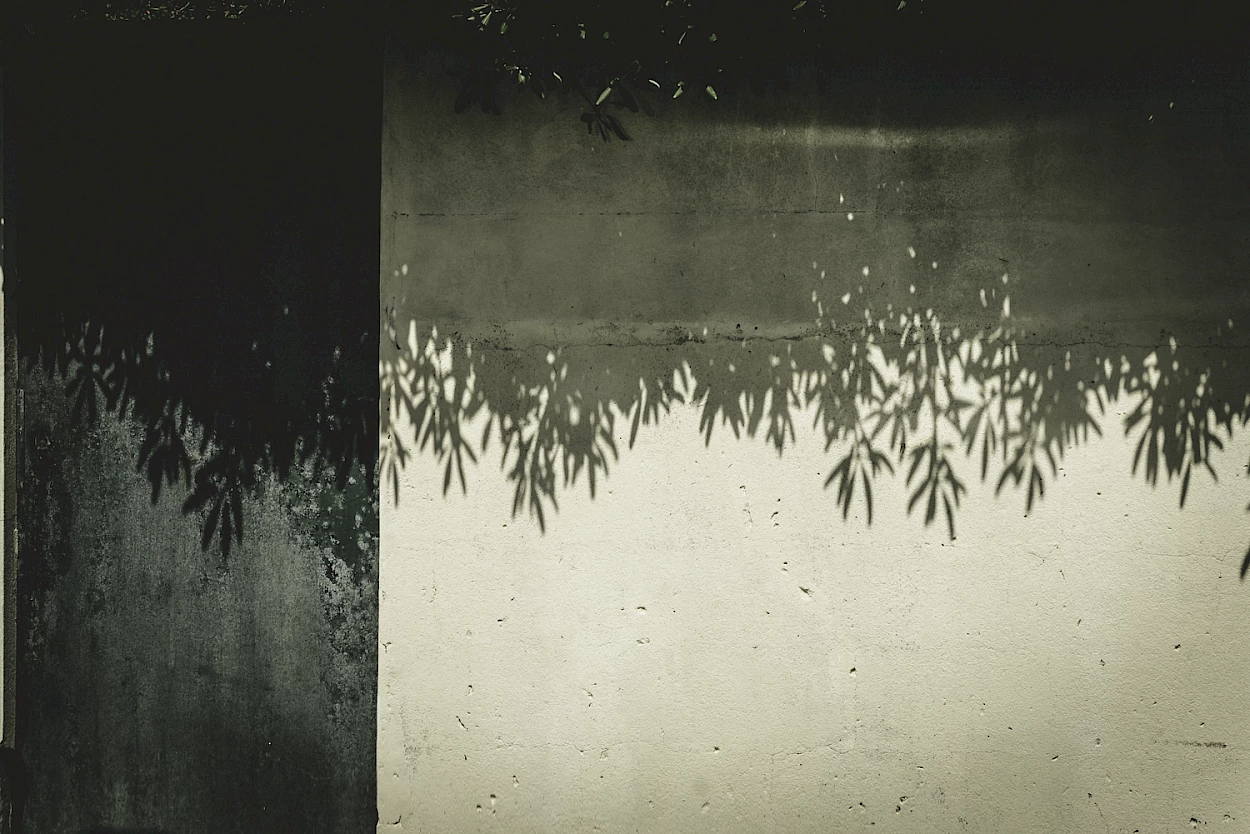Presentation
The GREENARTS project | GREEN PRODUCTION - PERFORMING ARTS IN TRANSITION is a Research & Development project of CEIS20 - Center for Interdisciplinary Studies of the University of Coimbra, under the responsibility of Vânia Rodrigues (Principal Investigator) and Fernando Matos Oliveira (Co-Responsible Investigator), funded by FCT.
Calendar: 2023-2024
Principal Investigator: Vânia Rodrigues (vania.rodrigues @ uc.pt)
Co-responsible Investigator: Fernando Matos Oliveira (fmatos @ fl.uc.pt)
Researcher: António Ventura (venturamartins @ uc.pt)

Scope of the project
The collective experience of the pandemic made climate change more visible and tangible than ever: the urgency to tackle it from all sectors of society has stepped up and the arts and culture are no exception. In the field of the performing arts, artists, producers, and decision-makers are currently dealing not only with the sector’s pre-existent shortcomings but also trying to renegotiate the relationship with our planetary host (Latour, 2017). ‘Greening' the performing arts has become, thus, an expanding area of action, debate, and research.
The project GREENARTS will look into the transformations that such a colossal change as the one forecast by the green transition can bring into the performing arts.
In that quest towards the green transition, the arts have mostly been challenged to take on the role of raising awareness around the severity of the climate crisis, given that their ability to tell stories, to offer narratives which “make complex relationships between entangled (eco)systems understandable” (Skolczylas,2021:6) is increasingly confirmed by behavioural scientists (Banerjee and Shreedhar, 2021). On that account, this storytelling capacity has been the main case of advocacy campaigns, where culture is often portrayed as “the missing link to climate action” (Julie’s Bicycle, 2021).
However, the majority of the current initiatives, as well as the corresponding literature dealing with sustainability arising in the field of theatre/performance studies consistently display a number of vulnerabilities:
(a) they are more angled towards arts institutions (adaptations of cultural buildings or festivals) than towards independent artistic creation and production (Skolczylas, 2021: 9);
(b) they uphold pragmatic approaches but lack conceptual clarification and reflective analysis;
(c) they are mainly focused on the theatrical form itself, either paying attention to the different expressions and interpretative possibilities of anecologically self-aware theatre or underlining the power of the arts narratives, but not so much on changing the arts’ modes of production.
Diversely, GREENARTS argues that in this ‘theatre of ecology’ paradigm, theatrical experiments which are environmentally conscious should also be explored in terms of their specific modes of production. Whereas ‘thematic’ and ‘aesthetic/eco-poetic’ approaches (Sermon, 2017) remain indispensable, our research points to the need to critically address ‘operational ecology’ (Bilabel, 2021), i.e., elements such as scale, budget, material resources, touring plans, set design, travel or institutional relationships. Building on our previous research on the critical position of creative producers and arts managers in the modi operandi of the performing arts (Rodrigues, 2022), we posit that the ‘pragmatic’ aspects of artistic production are not, in fact, devoid of aesthetic implications (Sermon, 2017:12) - artistic creation and the production/managerial elements are profoundly interdependent (Rodrigues, 2021; Sampaio, 2020, Kay, 2014) -, hence the relevance of considering ecology materially and not only metaphorically (May, 2005:86).
Moreover, GREENARTS claims that the articulation between theatrical production and ecological requirements is more than an end in itself. It aims to explore whether the transition towards an eco-responsible paradigm – and the incorporation of concepts such ecodramaturgy and green production - can be imaginatively translated into creative production and arts management practices and to what extent can it even potentially accelerate the rise of new professions.
Activities
Study and Report
Report of the Inquiry into Ecological and Sustainable Practices in the Performing Arts in Portugal
This document was produced as part of a wider investigation, which includes research into the intersections between the regimes of production and creation, and the discursive and practical transformations of artistic production in the face of growing demands for social and environmental sustainability.
Implementation of a survey to study the positions, practices and needs of part of the artistic community in Portugal.
DGARTES is supporting this research in the form of a Strategic Cooperation Agreement with the University of Coimbra.
Partners - DGARTES - National General-Directorate for the Arts
More information here.
2nd Edition of the Seminar Modes of Production - Performing Arts in Transition
International seminar that aims to take stock of the ways in which the regimes of artistic creation and production intersect, lending special attention to emergent discourses and their impact on ways of producing and managing theatre, dance and performance in the context of cultural projects or institutions. Linking art studies with the more hybrid field of cultural management, we will gather and present a variety of contributions documenting multiple transitions taking place in the performing arts in different national and international contexts.
Partners - Gil Vicente Academic Theatre (TAGV)
More information here.
Collaboration with Creative-Europe funded project STAGES and partnership with D.Maria II National Theatre (Lisbon, Portugal)
The team conducted a series of workshops with different teams (stage, technical and building maintenance team, IT, human resources, communication and production departments; as well as the board of directors and artistic directors) at the National Theatre in Lisbon (TNDMII). This was possible in the framework of our collaboration in the Creative-Europe funded project STAGES – Sustainable Theatre Alliance for a Green Environmental Shift, where we were to implement and adapt the “Getting into the Doughnut – the Sustainable Theatre” workshop.
The workshop was originally developed by the Competence Centre for Sustainability of the University of Lausanne and Théâtre Vidy-Lausanne and is licensed under CC BY-NC 4.0. The National Theatre in Lisbon (TNDMII) is one of the 12 high-profile theatres which have implemented it. In the Portuguese case, this was made under a Strategic Cooperation Agreement between TNDMII and the University of Coimbra/CEIS20 – Centre for Interdisciplinary Research, which is responsible for the research project GREENARTS. Green Production – Performing Arts in Transition”.
Partners: D. Maria II National Theatre; STAGES
Collaboration with the cooperation project PLANT
Performing Life Akademia Network (PLANT) is a 2-year transdisciplinary project that aims to encourage the development and experimentation of contextual artistic and curatorial practices that cross performing arts, the commons and everyday life.
Team
Vânia Rodrigues

Vânia Rodrigues is a practitioner-researcher with a renowned track-record as an independent arts manager, curator and consultant, having worked for over 15 years’ in various capacities in the performing arts sector, both in the institutional sphere and with independent artistic structures.
She holds a PhD in Artistic Studies – Theater and Performative Studies from the University of Coimbra (2022) and a Master in Cultural Policies and Cultural Management from the City University of London (2009), both awarded with Distinction.
Among other recent assignments she oversaw the artistic and executive management of mala voadora, a well-known collective working on the cutting edge of international contemporary theatre which has performed in over 12 countries in the EU and the USA. She also acted as Strategy Advisor for Artemrede, a Portuguese theatre network between 17 cities. In that capacity she advised the Executive Director and supervised the writing and management of various national and international funding grants and drafted the network’s strategic plan 2015-2020. She has been a consultant for projects such as Guimarães 2012 European Capital of Culture, D.Maria II National Theatre, or EGEAC, Lisbon’s municipal agency for culture, administrating +20 cultural spaces. She has teached and written extensively on arts production, and is regularly invited as a jury member in competitive support for creative practitioners. Recently, she was appointed curator for the Creative Europe 2021-27 Launch Conference, as part of the Portuguese Presidency of the EU, in charge of the Panel “Mobility and sustainability: challenges ahead for the performing arts”, whereby she intensified her engagement with sustainability issues in the arts production cycle.
She is the author of two books on production and management in the performing arts, “AS PRODUTORAS - Produção e Gestão Cultural em Portugal. Trajectos Profissionais” [THE PRODUCERS - Arts management and production in Portugal. Professional Trajectories](2020) and “Modus Operandi – Produção e Gestão nas Artes Performativas” [Modus Operandi - Production and Management in the Performing Arts](2022).
Currently, she is a Principal Researcher at CEIS20 – Centre for Interdisciplinary Studies | University of Coimbra where she leads the R&D project “Green Production – Performing Arts in Transition”, dedicated to analyzing the ways in which the performing arts perceive and act upon the growing demands of social and environmental sustainability.
Fernando Matos Oliveira

Associate Professor at the University of Coimbra, Portugal (Department of History, Archaeology and Arts). His main areas of interest are Theatre and Performance Studies, Modern and Contemporary Portuguese/European Drama. He is the Course Director of the PhD Programme in Art Studies of the University of Coimbra, where he teaches Portuguese Theatre, Performance Art, Analysis and Critique, Arts Production and Management, Hybridism and Transdisciplinarity in the Arts.
He has been publishing essays on theatre, performance and literature in several portuguese and international journals (Performance Research; Theatre, Dance and Performance Training; Arti dello Spettacolo/Performing Arts Journal; Santa Barbara Portuguese Studies; Art Teatral; Sala Preta; Sinais de Cena; Revista de História da Arte; Colóquio/Letras). He is the editorial director of the collection “Dramaturgies” at the University of Coimbra and the author of “O Destino da Mimese: Teatro Português Moderno” (1997), “Teatralidades. 12 Percursos pelo Território do Espetáculo” (2003), among others. He was the editor of the following anthologies and thematic volumes: “Writings on Theatre” (by António Pedro) (2001); “Conceitos e Práticas de Criação em Artes Performativas” (2017); “Ensaios Ruminantes sobre a Obra de Patrícia Portela” (2017, with Thiago Arrais); “Práticas de Arquivo em Artes Performativas” (2019, with Cláudia Madeira and Hélia Marçal).
Additionally, he is the Director of Teatro Académico Gil Vicente (TAGV), and in that capacity he has been promoting the approximation between research and artistic creation, hosting cycles and projects that bring artists, students and artist-researchers into contact, namely in the activities developed in the context of LIPA - Laboratory of Research and Artistic Practices. In that joint capacity as researcher/teacher and Director of a theatre, he has been supporting creative work within the university environment, promoting several practice-led research PhD’s since 2010. Specifically, he has created and runs the “Practice as Research” programme since 2012, aimed at supporting doctoral projects with practical and experimental components in the field of the arts.
He is a member of CEIS20 - Center for Interdisciplinary Studies [www.uc.pt/iii/ceis20], where he is currently leading a research group on Art and Performance and co-leads, with Vânia Rodrigues, the project Modes of Production - Performing Arts in Transition.
António Ventura

António Ventura is an ethnomusicologist, cultural producer and researcher. He graduated in Artistic Studies from the University of Coimbra in 2014, obtained a Master's degree in Music (specialising in ethnomusicology) in 2016 and a PhD in Music (specialising in ethnomusicology) in 2022 from the University of Aveiro, the latter being financially supported by a 4-year grant from the Foundation for Science and Technology. He was a researcher at the Institute of Ethnomusicology - Centre for the Study of Music and Dance (INET-md) (2016-2022), participating in various projects and academic activities, namely the FCT-funded projects "Our music, our world: musical associations, wind bands and local communities (1880-2018)" (2016-2019) and "EcoMusic - Sustainable practices: a study of post-folklorism in Portugal in the 21st century" (2018-2021). He has been part of interdisciplinary teams and has presented dozens of oral communications and published in specialised national and international journals. He is a researcher at the Centre for Interdisciplinary Studies (CEIS20) at the University of Coimbra, as part of the GREENARTS exploratory project.
He has carried out research in the field of ethnomusicology, particularly in the municipality of Idanha-a-Nova, and has also taken an active interest in choral singing practices in the São Pedro do Sul and Baixo Alentejo areas. His areas of scientific interest are the processes of traditionalisation, patrimonialisation and documentation of popular or traditional music. At the same time, he is interested in visual ethnography and documentary film as a tool for scientific research and as a means of preserving cultural practices, protagonists and contexts. He is currently working on the intersection of Arts and Ecology and on the different dynamics of environmental sustainability linked to cultural production. He is also a musician and composer who has performed in several European countries with his garage rock project Cosmic Mass.


